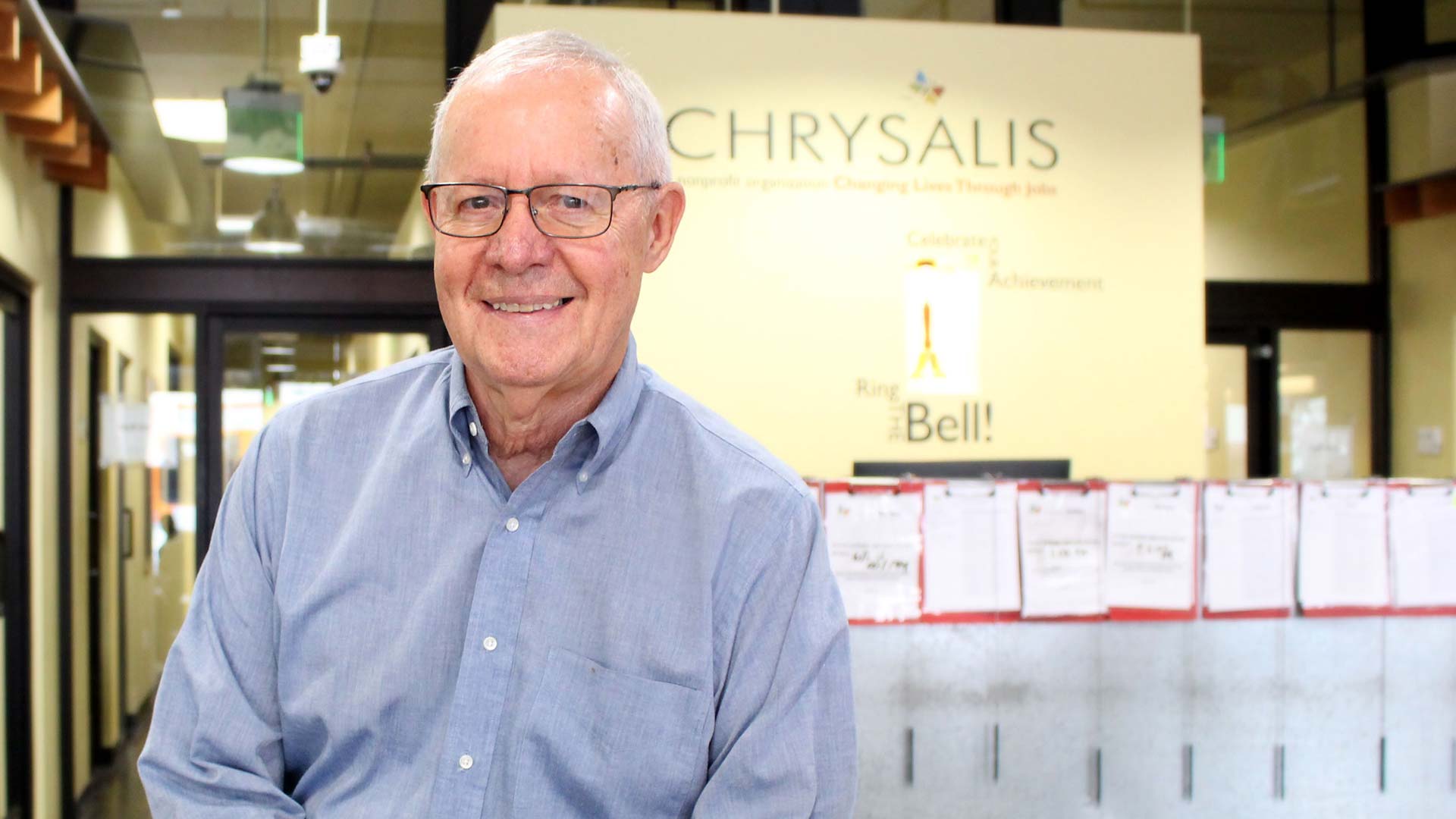“Being able to help others succeed has always been important to me. As a manager, a teacher, and a volunteer at Chrysalis, I get more satisfaction watching someone else succeed in their career than anything that I personally accomplished. It just means that much to me.”
Bill began volunteering at Chrysalis’ Downtown Los Angeles center almost two years ago, after returning from teaching in China for thirteen years. He had moved to China with the intent of teaching for only one year, but quickly fell in love with his work there and extended his stay. Bill began at a small college where he noticed his students were competing for jobs with young adults from far more prestigious universities. “I thought I could give them a competitive edge by teaching them how to get through an interview and doing their interviews in English, which is really challenging for the students. And it worked.”
When he learned about Chrysalis after returning from his travels, Bill saw an opportunity to utilize the resume-writing and interview skills he had gained from his years in management and teaching. Beyond that, though, he was drawn to Chrysalis’ philosophy. “It was that whole process of if you want to be successful in your job search, this is the hard work you have to do for yourself, which really appealed to me. Maybe because I’ve been there, done that,” he explains.
Now, Bill dedicates three mornings each week to preparing resumes and conducting practice interviews with Chrysalis clients. Though prior to volunteering at Chrysalis Bill had little experience working with individuals experiencing homelessness or who have been incarcerated, he soon realized that the basics of job-readiness he taught in China, were just as applicable to Chrysalis clients as they had been to his students. Whether individuals are graduating from college or exiting prison, both are learning how to navigate the workforce–potentially for the first time and with their own sets of challenges. No matter where a student or client may be coming from, Bill can utilize the same foundation to offer them the support they need to seek employment.
“I think the most important thing I do is help clients tell their stories. I start writing everything down and they start engaging and opening up. Then I feed it back to them from the point of view of a potential employer. You don’t know how a person will behave on the job so the best you can do is say, ‘If they’ve done it before, they’ll likely do it again.’ That’s why these stories are very important. They’re predictors of future success.”
For some clients, discussing their background can be difficult, especially if it includes time spent in the criminal justice system. They may not even recognize how their experiences can help them in the future, so Bill pulls their skills and accomplishments from the stories they tell him. Recently, when a client was hesitant to discuss his incarceration, Bill instead asked him to simply talk about the jobs he had held. Bill soon uncovered that the client had become a supervisor during his sentence. “I have thirty years of management experience, so I know a good supervisor when I see one,” Bill laughs, thoroughly impressed. The client went on to tell him about supporting his workers, how he dealt with problems, and so forth –– all of which Bill translated into a comprehensive resume.
Though he had taken a step back from teaching professionally, he found Chrysalis was the perfect way to continue serving those in need of a little guidance as they embark on a new chapter of their lives.
“When I got a little more free time, I thought: why not spend more time at Chrysalis? Watching somebody get up and ring the bell––that’s pretty good stuff.” Bill smiles fondly. “I just really look forward to showing up here every morning.”
